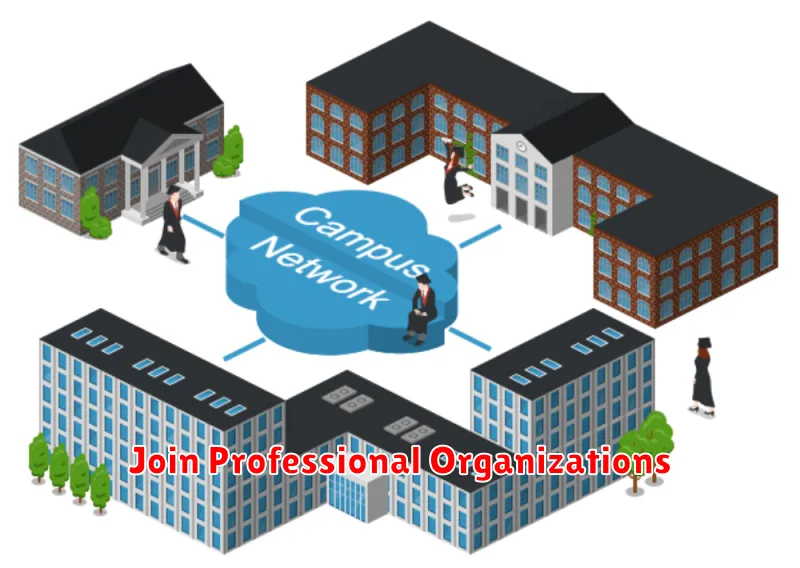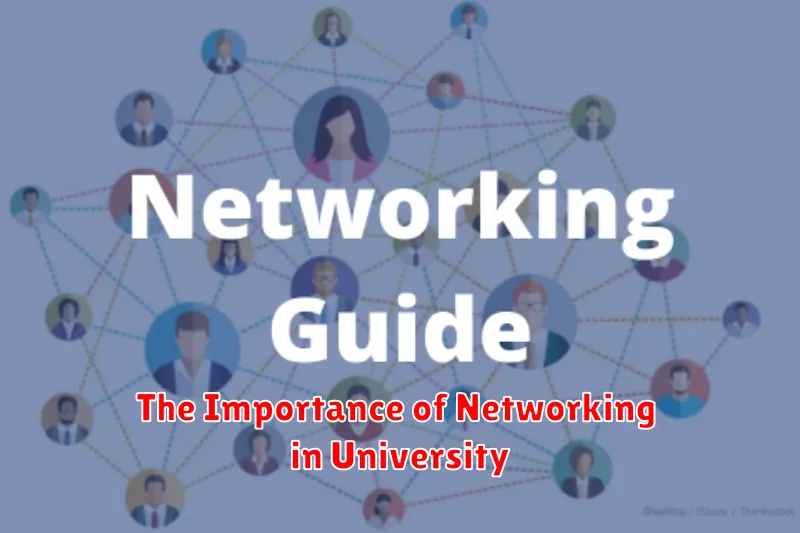Networking is a crucial aspect of the university experience, offering students invaluable opportunities for professional and personal growth. Building a strong network during your university years can significantly impact your future career prospects, opening doors to internships, mentorship, and even your first job after graduation. Beyond career development, networking in university facilitates the development of essential soft skills such as communication, interpersonal skills, and the ability to build rapport with individuals from diverse backgrounds. By actively engaging in networking activities, students can gain a competitive edge, broaden their horizons, and establish connections that will serve them well throughout their lives. This article will explore the importance of networking in university, outlining key strategies and practical tips for students to cultivate a robust and beneficial network.
From attending university networking events and joining student organizations to leveraging online platforms like LinkedIn, the opportunities for student networking are abundant. This article will guide you through various avenues for networking in college, helping you maximize your potential and build connections that will contribute to your academic and professional success. Learn how to effectively communicate your skills and aspirations, build relationships with professors and alumni, and utilize university resources to create a powerful network. Understanding the significance of networking is the first step towards unlocking a world of opportunities during your time in university and beyond.
Why Networking Matters
Networking plays a crucial role in university success and beyond. Building connections with peers, professors, and professionals opens doors to a wealth of opportunities.
Networking allows students to gain insights into various career paths, explore internships, and even discover unadvertised job openings. Strong networks provide invaluable support, mentorship, and advice, helping students navigate the challenges of university life and their future careers.
Furthermore, networking cultivates essential professional skills like communication, collaboration, and relationship building, which are highly valued by employers.
Attend Networking Events
Universities frequently host networking events specifically designed for students. These can range from career fairs to industry talks and alumni meet-and-greets. Attending these events provides invaluable opportunities to connect with professionals in your field of interest.
Come prepared with a concise elevator pitch about yourself and your career aspirations. Actively engage with attendees, ask insightful questions, and exchange contact information. Follow up with connections after the event to further nurture the relationship.
Use Social Media Effectively
Social media platforms can be powerful networking tools during university. They allow you to connect with classmates, professors, and professionals in your field.
Maintain a professional online presence. Your profiles should reflect your academic and career aspirations. Consider what potential employers might see.
Engage thoughtfully. Share relevant articles, participate in discussions, and connect with individuals who share your interests. Avoid excessive or inappropriate posting.
Join Professional Organizations

Joining professional organizations related to your field of study is a powerful networking strategy. These organizations offer numerous opportunities to connect with established professionals, alumni, and fellow students.
Benefits of joining professional organizations include access to exclusive events such as workshops, seminars, and networking mixers. These events provide platforms to learn about current industry trends and make valuable connections.
Many organizations also offer mentorship programs. These programs allow you to connect with experienced professionals who can provide guidance and support as you navigate your academic and professional journey. Mentors can be invaluable sources of advice, industry insights, and career opportunities.
Build Relationships with Professors
Developing strong relationships with your professors offers numerous benefits. Professors can provide valuable mentorship, guiding you academically and professionally. They can offer research opportunities, expanding your knowledge and experience in your field of study. Letters of recommendation from professors who know you well carry significant weight when applying for jobs or graduate programs. Furthermore, professors often have extensive networks within their fields, connecting you with potential employers or collaborators.
Attend office hours regularly, even if you don’t have specific questions. This demonstrates your interest in the subject matter and allows you to engage in meaningful discussions with your professor. Participate actively in class discussions and show genuine curiosity about the topics covered. These interactions help your professor remember you and recognize your commitment to learning.
Engage with Alumni Networks
Alumni networks offer invaluable connections for university students and recent graduates. Connecting with alumni can provide insights into various career paths, industry trends, and job search strategies. Alumni often serve as mentors, offering advice and support based on their own experiences.
Universities typically facilitate alumni engagement through online platforms, events, and mentorship programs. Actively participating in these initiatives can significantly expand your professional network and open doors to exciting opportunities. Reach out to alumni working in fields that interest you. Their advice and guidance can prove invaluable in shaping your career trajectory.
Volunteer for Relevant Opportunities
Volunteering provides invaluable networking opportunities. By contributing your time and skills to organizations related to your field of study, you gain practical experience and expand your professional network simultaneously. Seek out volunteer roles that align with your career aspirations.
For example, if you are a computer science student, volunteering to assist with a local coding workshop or hackathon allows you to meet professionals in the field, learn from experienced individuals, and demonstrate your abilities. These connections can lead to mentorships, internships, or even job offers.
Actively engage with other volunteers and attendees at these events. Ask questions, participate in discussions, and offer your assistance. Building relationships with people who share your interests can significantly benefit your career development.
Follow Up After Connections
Following up after networking events is crucial for building meaningful relationships. A timely follow-up reinforces your interest and helps solidify the connection.
Within 24-48 hours, send a personalized email referencing your conversation. Mention something specific you discussed to demonstrate your attentiveness. Suggest a future coffee chat or informational interview to further the connection.
Consistency is key. Maintain contact periodically through brief emails or social media interactions. Share relevant articles or industry news to keep the connection active and demonstrate your ongoing engagement.
Keep Networking Authentic
Authenticity is key to building genuine and lasting professional relationships. Avoid approaching networking as a purely transactional pursuit. Instead, focus on building meaningful connections.
Be yourself. Share your genuine interests and career aspirations. People respond positively to sincerity and are more likely to remember and want to help someone who is genuine. Forced conversations or fabricated interests will ultimately hinder your networking efforts.
Listen actively and show genuine interest in others. Networking is a two-way street. Asking thoughtful questions and actively engaging in conversations demonstrates respect and facilitates a stronger connection.
Maintain Your Professional Network

Building a network is just the first step. Maintaining it requires consistent effort. Nurturing these connections will pay off significantly in the long run.
Regular communication is key. Briefly touch base with your contacts periodically, even if there’s no immediate need. Congratulate them on achievements, share relevant industry articles, or simply ask how they’re doing. These small interactions keep you top-of-mind.
Reciprocity is also vital. Networking is a two-way street. Be willing to offer help and support to your contacts when they need it. This builds stronger, more meaningful relationships.

